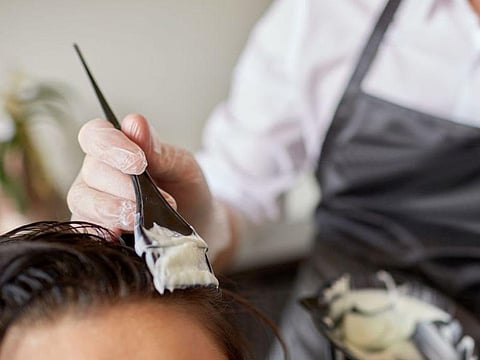FRIDAY, June 25, 2021 (HealthDay News) -- Nothing can perk up your appearance like a new cut and color, but failure to take proper precautions when having your hair dyed could result in chemical burns on your scalp, an expert warns.
"We usually see this injury around prom season and into summer," said Dr. Nneka Okafor, an assistant professor of family and community medicine at Baylor College of Medicine in Houston.
"We are seeing some now because people have been in quarantine and are finally going out again and want to try new hairstyles or get highlights, so it's not unexpected that there could be some scalp injury from various cosmetics," Okafor said in a Baylor news release.
Chemical burns on the scalp can be caused by certain additives and chemicals or from leaving the hair wrapped in foil under the dryer for an extended period.
Okafor recommends watching for these symptoms when the dye is placed on the hair: redness on the scalp, irritation, pain or burning.
If you suffer a chemical burn, the first step is to fully rinse the hair. After the dye is removed, wash your hair with baby soap or any soap without harsh chemicals or fragrance.
Don't touch the affected area or put any other products in the hair that could cause further irritation or damage, Okafor advised. Aloe vera or petroleum jelly can be applied to the scalp until the injured area heals and scabs over.
"During the actual color session, the moment you feel any abnormal scalp irritation or pain you should let your hairdresser know immediately," Okafor said. "If you are starting to have a chemical burn, then they can remove the offending agent, which is probably the color that could be causing the reaction."
If you're considering getting your hair dyed, choose a knowledgeable hairdresser and have them do a test strip to ensure there is no reaction to the product.
"The scalp is an extension of your facial skin, so it is as sensitive as any other part of your skin," Okafor said. "If you are highly sensitive to various other products then you should be more alert and aware."
More information
The U.S. Food and Drug Administration has more on hair dyes.
SOURCE: Baylor College of Medicine, news release, June 22, 2021


